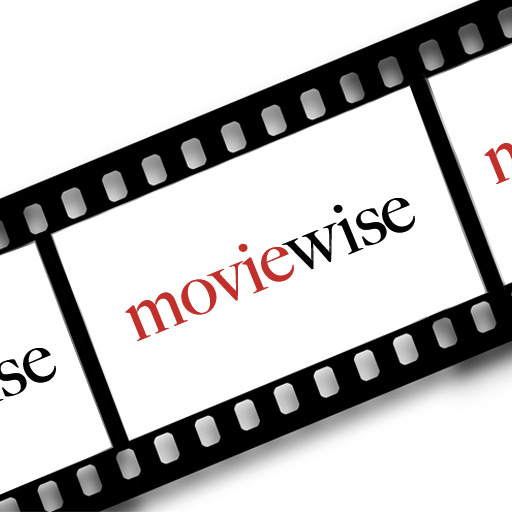Image by L.E. Wilson from RedBubble based on work by Gerd Altmann on Pixabay
🎬 moviewise’s Movie Reviews (organized in chronological order by film release date) :
1
Life Lesson: Art does not have to be serious.
The Band Wagon (1953) is an unusual and surprising ride seen through the eyes of a Hollywood actor on a career decline as he attempts a comeback by performing in live theater. The message of this film as a whole is that valuable art can come in many forms, including pure entertainment. It does this through the characters in the story, and through the film itself, being as it is an amazing spectacle of dancing, singing, dramatic and elaborate staging, fantastic costuming and imaginative stories that scream: isn’t this better than a “morality play with meaning and stature”?
At least it is in this movie because the aforementioned morality play “The Bandwagon” shown herein is a flop. It lays an egg, and the audience leaves the theater after watching this modern retelling of Faust as if in a funeral procession. But The Band Wagon, the movie, this movie, is great fun. Actually, it’s better than fun. It’s an education about Hollywood, Broadway, the way they change and what is lost through time.
This movie is unlike anything that modern audiences normally experience and it is shocking because it is so grand, a true spectacular show, a play within a play with a ballet (Girl Hunt) within a broadway show, plus singing! It’s like we’ve been living in a desert and then come upon a civilization that really knows how to live it up. And this point is essential because sometimes people just need a real break from life and its troubles. Life is short—very, very short—and one day it just ends. So once in a while, at least, we must stop being so serious and take a moment to experience pure entertainment.
But there is something else this movie is saying about the bias we still see today that elevates serious drama above musicals, comedies, and fantasies. And that message is that entertainment is hard work. If you’re human, it doesn’t take much to pull at your heartstrings; the news by itself can make you cry. But what an amazing, magical talent it is to make the sad people who follow the news laugh! Entertainment is important, and the people who make it deserve more prestige.
2
Life Lesson: Learn to persevere—if you put your mind to it, you can accomplish anything.
Ah, the precision. Few things are more satisfying than watching something run like clockwork. Back to the Future (1985) is a fan favorite* for countless reasons, but chief among them is the great way in which this movie is organized. Everything is laid out perfectly in a precise, logical manner, and every scene seamlessly and delightfully moves the story along like shiny gears in a well-oiled machine. And what an exciting time-traveling adventure it is! It’s absolutely thrilling! And the stirring, heroic, fun music with a touch of twinkling magical sounds scattered throughout elevates it even more. It’s all so good! This is a really special movie.
Back to the Future opens with a clock scene. It’s a history of time. Clocks from different periods are intertwined together as the camera pans from the grandfather pendulum clock, to the electric clock radio, to the cuckoo novelty clocks and the antique analog alarm clocks. While the clocks are ticking, a television screen flickers on showing a news broadcast, which we later learn is “fake news.” The anchorwoman announces that “officials at the Pacific Nuclear Research facility have denied the rumor that the case of missing plutonium was in fact stolen from their vault two weeks ago. A Libyan terrorist group had claimed responsibility for the alleged theft. However, officials now attribute the discrepancy to a simple clerical error.”
Misinformation? Terrorists? Research??! Is this 1985 or 2015, or 2045? Amazingly enough, this movie about time travel is timeless. And not just because everything in it would make sense in today’s world and would not be out of place thirty years from now, but because Back to the Future speaks to universal themes that will never feel dated. How many of us have dealt with setbacks, lack of confidence, bullying, disappointment, rejection, and the fear that we’re just like our parents! What a nightmare!
But it gets even better. How many movies take you through an action-packed, adrenaline pumping ride that’s infused with comedy and teaches one of the most impactful life lessons there is:
learn to persevere—if you put your mind to it, you can accomplish anything.
Multiple characters learn this lesson and show steely determination in doing so. There’s the lowly soda jerk who goes from sweeping the floors of a cafe while attending night school to becoming mayor Goldie Wilson (Donald Fullilove). There’s George McFly (Crispin Glover), Marty’s father, who finally fights back against a truly menacing bully (he cleans Biff’s clock) and pursues a successful writing career after overcoming his fear of rejection. Then there’s Doc (Christopher Lloyd), who finally invents something that works, a time machine made out of a DeLorean because “the way I see it, if you’re going to build a time machine into a car, why not do it with some style!” Additionally, the heroic effort he takes to help Marty in a lightning storm—while being high up on a clock tower with electrical cables pulling apart, bells ringing, and the ledge he is standing on crumbling beneath him—is a visceral, beautiful representation of the movie’s message: you can do it, as long as you don’t give up.
And of course there is Marty (Michael J. Fox), who struggles with all the issues of the above characters plus some more: the low expectations of others, like his high school principal, Mr. Strickland (James Tolkan) who calls him out as a slacker: “No McFly ever amounted to anything in the history of Hill Valley”; the violent bunch of bullies who attack him at every opportunity; the lack of confidence that has him giving up on his musical ambitions before he’s even started; the repeated failures—from blowing up a giant speaker by overloading it, to being passed over at an audition; to dealing with mechanical car problems; and the disorientation from being sent thirty years into the past after being chased by terrorists wielding a rocket-propelled grenade. And yet, Marty overcomes. Marty perseveres. Marty accomplishes everything he set out to do. And while on this journey, Marty learns to play through the pain.
Wish we could all be so lucky!
—
* Back to the Future (1985) was selected in 2007 by the Library of Congress for inclusion in the U.S. National Film Registry for being “culturally, historically, or aesthetically significant.” President Ronald Regan referenced the movie in his 1986 State of the Union Address, saying "Never has there been a more exciting time to be alive, a time of rousing wonder and heroic achievement. As they said in the film Back to the Future, 'Where we're going, we don't need roads'."
3
Life Lesson: Just Say ‘No’ to drugs.
Early in the film Fear and Loathing in Las Vegas (1998), one of the main characters wildly paws at the air, swatting away bats that aren’t there. It’s funny. This is classic slapstick humor. Guy being attacked by invisible bats is mildly aware that he may be acting irrationally, so he bats at the bats only when he thinks no one is looking. There is another funny scene a little bit later, when this same character tries to check into a hotel, but being high on a number of drugs, is barely coherent and under the illusion that he is surrounded by lizard people, man-eating carpets, and grotesque plastic humans. His antics while on drugs and the description of what’s happening to his body are both quite comical:
Ahh, Devil ether. It makes you behave like the village drunkard in some early Irish novel. Total loss of all basic motor skills. Blurred vision, no balance, numb tongue. The mind recoils in horror, unable to communicate with the spinal column, which is interesting because you can actually watch yourself behaving in this terrible way, but you can’t control it.
Then slowly the film begins to lose its humor. The main characters, Raoul Duke (Johnny Depp) and Dr. Gonzo (Benicio del Toro) are still laughing, but what earlier seemed like playful “stick it to the man” hijinks from two rebels just wanting to have a good time, then transforms into sociopathic, destructive, abusive, violent behavior that makes you question why it seemed funny when they nonchalantly walked out of a nice restaurant without paying the bill near the start of the movie. When the protagonists become less sympathetic as the movie progresses, it dawns on the viewer that all their behavior from the start has been horrible, irresponsible, terrifying, and depraved. These are not passionate dreamers despairing about the state of the world and seeking escape through drugs. The two main characters turn out to be monsters, freaks, who endanger others without any qualms, and embody the quote from Dr. Samuel Johnson that opens the film: “He who makes a beast of himself gets rid of the pain of being a man.”
Their slovenly, disgusting, unwashed appearance is not an expression of liberated minds rising above societal conventions. It’s actually a physical representation of their pathology. They don’t care about themselves, or others. “Sticking it to the man” only served to deprive the poor waiter of a living wage, a little man who is humiliated by having coins tossed at him by Duke in lieu of a tip, and is then knocked to the ground trying to run after these ruffians waving the unpaid bill. But the two drug-addled protagonists get away with it, and go on to destroy rental cars, trash hotels rooms, threaten women, terrorize others and each other. Their behavior is so brazen and so reckless that it seems they are begging for some authority figure to reign them in—the police, the sheriff, the traffic cop, the security guard—but no one does. No one is keeping an eye on them, so they just continue on their path of destruction, making the world they are trying to escape from by using drugs much worse for everyone.
This transition that happens in the movie—where initially the audience goes along with the freewheeling, carefree, fun 1960s/1970s counterculture represented therein and then is shown the underling horror—is brilliant. One has to imagine that this is how taking drugs typically starts and ends. At first, it’s just cool, joyous and freeing—until it isn’t anymore. Fear and Loathing in Las Vegas graphically shows the perverse dehumanizing journey when drugs take hold, ending with a beautiful poetic admonition that essentially tells viewers to “just say ‘NO’ to drugs” because you can’t find happiness, or understanding, or enlightenment through drugs—oh and no one “is tending the light at the end of the tunnel,” so you have to take personal responsibility for yourself. And that, dear reader, turns out to be one of the most important life-preserving life lessons you’ll ever find in any movie.
If you need help for drug addiction please visit: Alcoholics Anonymous, Alcohol Detox Resource, American Addiction Centers, Hazelden Betty Ford Foundation, Lily’s Place, Self-Management And Recovery Training, or call the Substance Abuse and Mental Health Services Administration helpline: 1-800-662-HELP (4357).
4
Life Lesson: Be careful; you can’t always know from where your ideas come.
There seems to be a trend in contemporary movies of scrambling three different films into one. Rather than seeming edgy or creative, this technique feels more as if the filmmakers lack the discipline or the confidence in their story to follow through on a core idea and explore it fully to the bitter end. It’s a shame because there are movies like Dead Poets Society or the House of Sand and Fog that delve deep, and because of that, take us on unexpected journeys that force us to reckon with ideas and feelings that we haven’t known before. That is edgy and creative filmmaking—Inception (2010) is not.
In fact, it doesn’t take long before Inception starts to feel like a cheap, slow-moving, confused version of The Matrix (1999). It similarly has a group of expert misfits losing consciousness in a dingy room to go battle bots that are trying to kill them in another plane of existence while the audience all along searches for the truth: there is no spoon! Inception even copies some of the fun special effects that were innovative and amazing in The Matrix, like running up walls while fighting a nameless antagonist and seeming to suspend time. But Inception is not as interesting or as thought-provoking as The Matrix is.
Inception does have a riveting original concept, but it is needlessly sandwiched between a pointless 007 James Bond movie—one that consists of only the slick gun fights in faraway places—and a weaker, less suspenseful Matrix. The notion at the core of this movie is the significance of dreams in our lives—literal dreams—how they make us feel and behave, how they can be confused with memories, and how they can give us ideas that we might act on, thereby putting us at the mercy of our subconscious. But aren’t we always at the mercy of our subconscious? This is something writer/director Christopher Nolan could have explored further, instead of spending a massive budget on meaningless special effects, gun fights, and explosions.
Although Inception’s budget was three times larger than The Matrix’s, nothing in the overwrought special effects seems necessary or integral to the movie in the way the visuals do in The Matrix. The environment feels detached from the story, and really seems to simply serve as eye candy that Nolan included because he didn’t trust that the audience could enjoy a good story, a psychological thriller about a man (Leonardo DiCaprio) who betrays the trust of his wife, is riddled with guilt, and tries to make amends by… conceptually killing her off??? Or something like that. Inception is a confusing mess, with no real stakes or suspense, no clear satisfying explanation of who is doing what and why, and with too much of the action being verbalized instead of visualized, thus breaking the most cardinal of screenwriting rules: “show, don’t tell.”
But in order to guide the audience through multiple layers of disorientation, Inceptionneeds these boring lines of exposition. And the job of inducing pages of clunky explanation falls on a stone-faced student, Ariadne (Ellen Page), who was recruited to help the team in their quest. This particular character epitomizes everything that is wrong with the movie, which is, in sum, that it’s nonsensical. She is a novice, yet somehow becomes the manager, counselor, and main problem-solver while still learning how this new world operates by asking questions like, “what is this place?” and “what’s happening?” We are not given any reason why she would risk her mental health or her life to join this team other than she likes being in a made-up world. And we mostly get these reams of exposition while she is in conversation with another character, Arthur (Joseph Gordon-Levitt), with a similar flat affect and lack of charisma or personality. Let’s just say, he’s no Neo (Keanu Reeves), and this movie is no fun.
Please go watch The Matrix instead.
5
Life Lesson: People find happiness when they are: engaging in play, having new experiences, feeling connected to a community through friends and family, doing things that are meaningful (helpful), and appreciating what they have.
Perhaps ironically, one of the paths toward personal happiness is reached by turning the focus away from ourselves. It’s a funny thing, but we seem wired to adapt to our circumstances, what the documentary Happy (2011) calls our “set point,” which means that most of the time we settle into a base level of happiness and experience about the same level of happiness as we’ve always felt.
Your nervous system is a differential engine. It looks at differences. It looks at contrasts. That’s all it cares about.
— Pendleton Read Montague, Jr. Professor of Neuroscience
In other words, we take our happiness for granted. We don’t appreciate all the good things and people and loved ones in our lives that make us happy because we just get used to having them. To feel happy, we want more. Specifically, we want something novel and different. This is also called the hedonic treadmill, or hedonic adaptation.
But if you move away from that internal pull and instead put your focus and energy on something else or on others, a wonderful thing happens: Suddenly, you are no longer the tragic figure of an epic play who is always searching for an elusive constant level of happiness and joy. Instead, if you focus on a goal, you become a master perfecting a craft, experiencing flow on a regular basis as you immerse yourself in an activity that allows you to feel intrinsic reward from personal growth. Or, if you focus on others, you become a hero who is concerned for and attentively helps those in need. Both of these paths allow you to become a member of a community, and both allow you to find meaning and purpose in life.
We studied some of the happiest people and we found, without exception, that all of them had close supportive family and friends.
—Ed Diener, Professor of Psychology
When you take the time to care about something or to be kind to others, it gives you relief from worrying, lamenting, and bellyaching over every little thing in your life. Getting to know other people who share your passions amplifies the joys. Getting to know other people and their sorrows, pains, and annoyances gives you perspective and helps you to stop taking all the good things in your life for granted.
In other words, if you focus on yourself you’ll seem like a tragic figure, but if you focus on something else or on others, you’ll feel like a hero. That’s one of the secrets to happiness.
There are others, and many are found in the movie Happy (2011). Please allow yourself the joy of discovering them for yourself by watching this eye-opening documentary.
With happiness, the more you have, the more everyone has.
—Narrator, Happy (2011)
6
Life Lesson: Being good enough is not enough if you want to be great.
Whiplash (2014) is a suspenseful thriller that has an unusual and unexpected message about accepting pain and discomfort in order to excel in a field. Many sports movies that focus on physical skill show this type of endurance and grit, but Whiplash goes a bit further than that. It humanizes an abusive teacher, Terence Fletcher (J.K. Simmons), and justifies his brutal actions toward a young student.
In the real world, and rightly so, neither the students, the parents, nor the administration of a school would ever allow this kind of violent behavior, or anything like it, by a teacher. But that is, in a way, what this movie is criticizing in an exaggerated, over-the-top, and dramatic fashion.
Because some parents can be so overprotective and schools so afraid of losing funding or of damaging their reputations, it results in students being coddled. They are not pushed to greatness; they are rewarded for mediocre work; and—tragically—they never realize their potential.
There is no way to become great without a lot of difficult, uncomfortable, work. Whiplash is a vivid representation of the physical and mental stamina that is required to reach the top of a field. No one gets to that level with a pampered attitude, with their mommy complaining that the teacher is too demanding, for example.
But it is those few people who endure—who could never be discouraged no matter what obstacles or pain they encounter—who do indeed become great. This movie is for those who understand that.
7
Life Lesson: In order to win, you have to fight for yourself.
The word “Dangal” refers to a traditional form of Indian wrestling, which is the focus of the 2016 Hindi-language movie by the same name. If you have never seen a Bollywood film before, this is a good entry point into a magical world of filmmaking. You will like this movie, and you should watch it. At almost three hours long, it’s actually two movies in one, so it’s quite a bargain. Dangal has heart, humor, and all the excitement of a sports championship movie, but there’s more. It’s hard to do it justice in a review because the storyline is complex and very unusual. It’s a very modern movie about old-fashioned ideas.
This movie has a gentle message about how traditions, these bits of wisdom that are passed down through the generations, aren’t all bad, but some really are. And it’s a difficult challenge for all of us to find the right path between opposing forces. Dangalshows that struggle. We really don’t know where the movie is headed, who the good guys are, how it will all end. It’s rare, and quite a gift, to watch a movie that surprises you and doesn’t feel predictable. So this is indeed an excellent movie that is masterfully and impressively made as well as acted. It really especially puts most contemporary Hollywood movies to shame.
Inspired by a true story about a wrestling coach and his daughters, the lesson in it is heartfelt and hard-earned: Champions don’t just happen, they must be nurtured and guided. But the heart of a champion beats alone. No one can make you want to win, except you, and you have to triumph on your own.
There is a lot more going on in this movie, however, and audience members are left to decide what is more important to them: a traditional life, or taking a path that few will understand. Maybe there is no wrong answer, but maybe having more choices available is better—for everyone. If this conflict were turned into a poem that captures the sentiment, it would be “The Road Not Taken,” particularly the ending lines:
Two roads diverged in a wood, and I—
I took the one less traveled by,
And that has made all the difference.
8
Life Lesson: Go after your dream, even if it seems foolish.
La La Land (2016) is a fantasy. It’s a beautiful lie. But if the real world is harsh and indifferent, at best, to the plight of the dreamers, the believers, and the naive who think they’re special when they’re not, and those who think they’ll beat the odds, although they won’t—then that’s all the more reason to enter this candy-colored dream world, where a simple girl becomes a famous, glamorous, movie star complete with a loving family, and where an earnest boy can hold on to his dignity, independence, and integrity to reach all his professional goals. This suspension of reality, this joy in the incredible and improbable success of personable and relatable characters is why we go to the movies. It’s why we immerse ourselves in the dreamscape of the cinema.
But La La Land holds back from delivering a true Hollywood happy ending. As if to ease us back into the mundane struggles that confront us—without the cinemascope romance, or the choreographed soundtrack, or the magical, lucky encounters—the movie ends with the melancholy lament of regret by showing us a glimpse into an alternate, happier ending to the one we are given. But this alternate ending was just a daydream, only possible if everything had been perfect and every choice or decision made by the characters had been the right one. This, of course, is impossible—even in a fantasy movie.
So we are left with only this: your dreams may not work out exactly as you expect, but while you hold on to them, and truly work to achieve them, you are living a life full of wonder and hope. What a beautiful place to be, as fantastic and romantic as any movie. What a great way to shield and protect yourself from a cruel and uncaring world. So, go on: go after your dream, even if it seems foolish—because sometimes dreams do come true, and even if they don’t completely, what you do achieve because you went after your dream will still be something wonderful and unique. Not a bad story for a running time of 2 hours and 8 minutes.
9
Life Lesson: Memory is fragile, but love is felt in the present.
Touch has a memory.
I hope you have experienced, or soon will, the feeling of relaxation and joy that comes over the body when you touch someone you love. It’s probably what peace feels like. It’s probably what we all need to feel from time to time in order to be compassionate people.
But life is such that there may come a time when our loved ones are not with us anymore, and when there may not be anyone around who will be able to provide this cascading feeling of security for us. We can hope that somehow someone in the future will come along who will provide that love, but if senior care homes where residents rarely receive any visitors is any indication, it’s best not to count on it.
Here then enter the robots, the artificial intelligence, the toys that may soon be able to provide the comfort and connection we seek. This realm is full of fantastical possibility, and it’s fertile grounds for the creation of works like the play and the futuristic movie, Marjorie Prime (2017), about the use of AI holograms to help families cope with death. What could be more consoling to us than having our loved ones come back from the dead, in their youthful prime, with only the happiest memories to share and reminisce over?
This movie is quiet, introspective, and gentle while adeptly tackling ideas about love, forgiveness, bereavement, memory, and identity. But above all, Marjorie Prime serves as a reminder that life is fragile, nothing is permanent, and yet, quite miraculously, throughout our lives we can love and be loved.
How lucky we are.
10
Life Lesson: You have to decide, on your own, to take good care of yourself.
The 2017 movie The Departure is an embodiment of Alice’s lament in Alice in Wonderland (1951): “I give myself very good advice, but I very seldom follow it.” It is also a cautionary tale of sorts, or at least a reminder to be ware of abdicating responsibility.
At about the 26 minute mark, we are shown the facade of a hospital, and this film being about a Buddhist monk’s attempt to help suicidal people in Japan live another day, one assumes that we are going to see the monk visiting a newly admitted patient. But it turns out that the monk is there to get treatment for clogged arteries and enlarged lungs (pulmonary emphysema) that appear to be the result of his midnight wandering lifestyle, which includes staying up all night drinking, smoking, and clubbing. Meanwhile his very patient wife takes care of their toddler, without any help from the monk, who walks around their home consumed and stressed out by his phone, which rings incessantly as people with suicidal thoughts make a potentially final effort to contact him.
We don’t know how effective he is in preventing suicide, but he is certainly successful in encouraging dialogue, as he explains:
I’ve learned through experience that I can’t save anyone. I try to create an atmosphere that makes it possible for them to share their problems.
One of the exercises he conducts asks participants to think about what they would leave behind if they died: the most precious possessions they have, the most important people in their lives, and the opportunities that life affords like trying new things or continuing to do something they like. It is a method that can help develop gratitude and the ability to look beyond yourself and your inner turmoil.
Clearly the monk, Ittetsu Nemoto, is kind and well-meaning, but it is also obvious that he needs as much help as the people he’s ministering to. He is still haunted by and reeling from the suicides of three people close to him who died when he was young: his favorite uncle, a classmate, and a bandmate. They were all people he admired, looked up to, and seemed healthy. The monk struggles with trying to find an answer to the question: why did they feel they needed to die? It’s a poignant example of the kind of deep, painful scars that those affected by someone’s suicide carry with them.
The most instructive part of the movie is when the monk visits a young woman at her home who is feeling down and inquires about her grandfather. “Let’s learn from your grandfather,” he tells her. “We should both experiment and then come back here and report to your grandfather on how we’ve changed.” It soon becomes apparent that the monk is really there to get help himself, in the form of advice from the old man, who is probably the healthiest and happiest person in the whole film.
But the monk ignores the advice given by the 84-year-old and continues with his unhealthy behavior until he’s in the hospital getting heart surgery—fifteen minutes before the end of the film. It is then that the monk decides that he needs to reevaluate his priorities. So we circle back to the counsel from the one person who has real acquired wisdom to share. Although it doesn’t sound as fun as being self-indulgent and self-destructive, it is still very sage advice from the grandfather:
You have to look after yourself.
If you want help for suicidal thoughts please visit: The National Suicide Prevention Lifeline, American Foundation for Suicide Prevention, International Association For Suicide Prevention, The National Domestic Violence Hotline, HelpGuide, Give An Hour, Vets4Warriors, Mayo Clinic, or call the Substance Abuse and Mental Health Services Administration Disaster Distress helpline: 1-800-985-5990.
11
Life Lesson: Happiness is success, and success is happiness.
While Yesterday (2019) explores a number of interesting issues about truth, love, and success, it is, unfortunately, a very uneven movie. The tone is off. The actors seem to be performing as if underwater. They are muffled and flat—unfeeling. Except for Kate McKinnon, who plays a tough-as-nails music manager, aptly named Debra Hammer.
The moment she steps into the frame for the first time is hilarious. Kate McKinnon is a solid actor who delivers a real character while the other actors play hackneyed, glib abstractions that fail to connect. This movie is worth watching just as a study in contrast between an actor who can reach an audience with a performance and those who are merely reciting lines for characters they don’t believe are real.
It’s a shame because there is great potential in the idea of an amateur musician, Jack (Himesh Patel), being able to access the entire Beatles catalog and claim it as his own. Anytime one has the chance to hear music from The Beatles is time well spent, so the movie has that going for it. As one of the side characters that pops up briefly says, “a world without The Beatles, is a world that’s infinitely worse.” It’s one of the truest lines in life.
At the very least, Yesterday should serve as a reminder that if you have not yet heard all The Beatles greatest hits, you should do so now. These are beautiful, poetic songs, earnest and fun, full of love. But this movie is probably not worth your time.
One of the most appalling characters in Yesterday is the love interest, Ellie, played by Lily James. This is a school teacher who essentially, and hypocritically, says that being a teacher is a waste of time. “Jack, if you go back to teaching, that is when you’ve got no choice. Yeah, because you’ll end up putting all your genius into all those kids. And then you won’t have any imagination or energy left to put into your music, which really matters.” This odious sentiment is never challenged in the movie. To see a counterpoint to this unenlightened view, please watch The School of Rock (2003), a movie about someone who truly loves music and joyfully shares his passion with school kids.
Meanwhile Ellie, the love interest and life-long friend who is also Jack’s manager, has the annoying quality of swooping in to deliver an ultimatum or otherwise cause chaos at a number of inopportune times, like when the lead character is in the middle of celebrating at his going away party or when he is in a booth at a recording studio with everyone watching.
This is an example of how she speaks to him:
Ellie: In the end, to you, I’ll always really just be Ellie with the frizzy hair. Ellie from the “fun chum” column. Ellie, who for reasons no one understands, drives you around in her car. So just go and please just catch your plane.
Jack: We haven’t finished the conversation.
Ellie: Well, we have. We have. Unless in Liverpool Lime Street at 11:14 on a Friday—unless you choose to stay.
Jack: I can’t stay today. I’ve gotta do the Late Late Show tomorrow, and I’ve gotta do the marketing meeting of meetings. It’s ridiculous.
Ellie: And that was your chance.
That was your chance? Drop everything right now for me and if you don’t then we can’t be together? This is an entitled, unlikable character. In fact, her statement to him is not just an ultimatum, it’s sabotage. Supposedly as his manager his success is what she had been working for years to achieve and now that he is on the verge of realizing the dream of releasing a hit album she tells him to stay with her, shirk his responsibilities, and stop working on it?
Please, dear reader, don’t ever let anyone imply that you need to give up your career aspirations, your goals, your dreams, your life—to meet someone else’s arbitrary demands. Anyone who loves you will support you, will be happy for your success, and will not try to throw hurdles at you as you are struggling to climb the ladder.
This messy romance takes up half the movie, and it’s ugly. A third person is involved. This is actually a love triangle, but the characters are so shallow that the third wheel just steps aside like a sacrificial lamb without it being of any significance. Elle just jumps from one boyfriend to the other as if she’s changing shoes, not dealing with people’s hearts—and everyone just goes along with it. There are far better movies that really make you feel for the three people involved in a love triangle where only one couple can exit: Pretty in Pink (1986), Kinky Boots (2005), Lucas (1986), Sliding Doors (1998), even Back to the Future (1985). Please watch those movies instead.
Yesterday also has a cliché message that doesn’t resonate. The message in this movie is that success is happiness, and happiness is success, so you don’t need wealth, prestige, fame, or even a well-paying job as long as you’re happy. While there is some truth in that, this movie is not the vehicle to deliver this particular message because the main character never enjoyed success, or even being around successful people.
Jack always has a downtrodden, depressed look on his face whether he is in a fancy hotel, performing for a large crowd, performing for a small crowd, or at home. Of course that could be because his manipulative girlfriend, aloof parents, and clueless friends are so awful, and also because he knows he is a fraud who can’t write songs as good as the worst Beatles song and has no one he can confide in about that.
So he never actually experienced success. He did not feel the satisfaction or fulfillment of reaching the top of his field because of his creations, his products, his work. He cheated—that’s all. He merely lives out the old adage “winners never cheat, and cheaters never win.” There are no stakes then, in giving it “all” up for supposedly “true” love in order to return to the low paying and apparently unrewarding job he had before. Once again this bears repeating: no one who loves you would ask you to give up on your ambitions. That’s not love.
Also, he doesn’t fall in love with Ellie either. All we get is her declaration of love and he passively agrees to be with her as if it’s a one way transaction. And he too does something extremely manipulative as well as unfair when he surprise announces that he loves her back. He invades her privacy by showing her face and her reaction live on a giant Jumbotron for a stadium crowd to see—a crowd that includes her current boyfriend. What kind of inhumanity is this? It’s cringeworthy. It’s a sledgehammer to basic human decency, and in no way romantic. You don’t shame or coerce someone into loving you, or try to break up a couple! This is what a narcissist who doesn’t care about other people but wants to make a grand gesture does.
Listen to Paul McCartney’s “Hey Jude” lyrics instead:
You're waiting for someone to perform with.
And don't you know that it's just you.
Hey, Jude, you'll do.
Yes, you’ll do. It’s better to be alone than with bad company. In fact, you shouldn’t let your happiness completely depend on someone else. And it’s better to earn whatever level of success you achieve on your own merits. You don’t need this movie to tell you that cheating and lying won’t bring you happiness, or true success.
12
Life Lesson: Don’t make decisions out of fear.
I have been greatly influenced by the great writer and film critic Roger Ebert. I learned about movies, about making movies, and about film criticism from him. He’s even the reason “moviewise” has a Twitter account! Believe it or not, I learned about Twitter from him, and his is the first account I ever followed. I love that man, but there was one thing I never wanted to do that he did, which is to rage about how much I, hated, hated, hated, a movie! But here we are.
Let me first begin by clarifying my process. I always start a movie wanting to love it. I look at movies as treasure troves of wisdom after all, and eagerly await what they may reveal about the mysteries of life. So it is with great sadness and disappointment that I have to let you know that Tick, Tick… Boom! (2021) is horrible.
It’s so horrible that I feel sorry for the man whose life was used as the basis for this portrayal. Jonathan David Larson, a musical theater composer, is a worthy subject who deserves a well-made documentary or bio pic about his incredible life, but this effort by first-time director Lin-Manuel Miranda that was distributed by Netflix isn’t it.
Tick, Tick… Boom! isn’t even a movie. It doesn’t deserve that classification. It’s a collection of eleven very badly made music videos, with no real dancing, no substantial choreography, no dazzle. These music videos are so bad, they wouldn’t get broadcast on MTV when it ONLY showed music videos. And these cheesy, cringe inducing, badly lip-synched, awkward music videos are strung together by voiceover narration—which is widely considered to be the laziest tool in filmmaking—from not just one but TWO narrators! It also has the thinnest, least dramatic storyline ever. Why is the story so thin? Because within the first two minutes of the film the whole dramatic arc of Larson’s life is revealed, matter of factly, by a vacuous, unexpressive voice that basically sounds like a bored high school student reading a paragraph out loud in remedial English class.
Of course all movies start out as good ideas, but it’s the execution that matters. The acting here is either flat and amateurish, or it’s overwrought overacting veering into self parody. All the characters come across as phony, somehow. The dialogue is unnatural, unrealistic, and cliché. The artificial lip synching is worse. It’s so bad that it sometimes feels like a parody of a musical. It feels like a silly satire that is not in on the joke. What a waste of time and potential.
But what about the music? It has two, maybe three, good numbers, while the rest of the songs are indistinguishable from each other and sound like the background music found in TV commercials. There is a mind numbing sameness to most of them, with the exception of the out-of-place rap song, the most insidiously monotonous of all musical genres, and the one for which Miranda is most well-known.
The soundtrack mostly consists of loud, obnoxious, and repetitive music that sometimes devolves into shouting with the same words hammered “over and over, and over and over, and over and over and over” (these are the actual lyrics from one of the songs). It’s boring, forgettable music, with no emotional weight, made even more wearisome by the lyrics, which mainly regurgitate the same action we see on screen. The music is distracting in a film format, and it probably worked better in the one-man show from which these songs were taken. The lyrics are basically stream of consciousness thoughts. It’s a pre-writing exercise that gets no further story development.
If you want to watch a good musical, watch West Side Story (1961), Fiddler On The Roof (1971), Grease (1978). These are hefty, entertaining movies with real drama and timeless, beautiful music that includes well choreographed dancing and set pieces. Two people flailing in slo-mo like they do in Tick, Tick… Boom! is not dancing. Even most Disney movies, The Little Mermaid (1989), Beauty and the Beast (1991), Aladdin (1992) are better musicals than Tick, Tick… Boom! And by the way, the lyricist, Howard Ashman, who worked with composer Alan Menken on all of these Disney movies died painfully of HIV/AIDS at age 40. His is also a story that people interested in Jonathan Larson, who died at age 35, should also get to know.
But there is another critical reason the aforementioned movies are a thousand times better than Tick, Tick… Boom! In these movies, the music serves to move the story along. Tick, Tick… Boom! fails at this, the most basic aspect of a musical. The songs say nothing. For example, the main character’s roommate is moving to a new apartment, so the guy sings about moving to a new apartment. The guy feels sad, the guy goes swimming, the guy is in a diner, so there is a song—A SONG—about each of these things. Compare that to The Little Mermaid (1989), where a couple goes on a boat ride and the song is not about the trees, or the boat, or the boat ride. The song is about falling in love. Get it? In a good musical, each song moves the story far, far along and is integral to what happens before and after they are sung. That never happens in this production.
Instead, Tick, Tick… Boom! is tedious and vapid. It has a dramatic story to tell, but it’s too lazy in the way it was put together to tell it. Instead of showing a music composer struggling on a keyboard, for example, listening to notes, writing them down, changing his mind, the scriptwriter has him struggling to type WORDS in front of a computer monitor as if he’s a screenwriter and not a music composer whose big dramatic job is composing one more SONG before he turns thirty. This isn’t how music is created. It’s barely how writing is done. Have none of the people who worked in this film ever watched a music documentary or created real music?
Here is another example illustrating the lazy writing: there is a missing cat. What happened to the cat? A cat shows up for one scene, having been mentioned in the opening sequence as one of the main character’s possessions. So about the halfway mark, we see the unnamed cat as part of a montage when the guy is cleaning his apartment. The cat isn’t around before or after that moment. It’s as if the screenwriter just needed to fill pages, get the word count up, so he concocted a wordless montage to do the trick, where he stuck a cat in for some potty humor, and when the montage is done, the cat just disappears. Wham, bam thank you, cat! Again, watch almost any Disney movie to understand how animals can be used to further the storyline, create sympathy for the lead, and be endearing characters in their own right.
The conceit of Tick, Tick… Boom!, that time is running out because the main character is about to turn thirty and has no great success to speak of, is not dramatized. We’re just told this, so it feels superficial. Tick, Tick… Boom! does not show us, nor does it fully express or explain the drive or urgency of turning 30. So, there are no stakes. Nothing dramatic is set to happen on his 30th birthday—and nothing does.
Thus far then, we have a morose movie with no stakes, full of gratingly bad songs, and even worse acting. And how can we have sympathy for a lead character who thinks he can write the pivotal song of his musical in one week, and then when he doesn’t, think he can do it in one day, and then when he doesn’t, in 12 hours. Yeah, that’s why the song is not so great, Buddy!
This is an instructive point though, and the real message a viewer can get out of this mess, which is to look in the mirror and ask yourself this question: is all the suffering that you are going through—your own doing? If so, grow up. Be more responsible. Stop feeling entitled, and stop thinking that the world owes you something. It doesn’t. It’s a competitive world. Those who do not give up and stay productive get better at whatever they choose to do. That’s all there is to it.
The most profound part of the movie occurs when Jon’s agent, Rosa, essentially tells him to start again, to try again when his big debut fails to sell.
You start writing the next one. And after you finish that one, you start on the next. And on and on, and that’s what it is to be a writer, honey. You just keep throwing them against the wall and hoping against hope that eventually, something sticks.
This is worth remembering, and it’s about the only true thing in the movie. Yes, please, keep trying; maybe the next one will stick.
There are a lot of great movies out there, so it’s clearly possible to make one. This one, however, gets a big thumbs down.
It’s tick, tick—BOOOOOOO!
Visit the moviewise catalogue—a searchable database of one sentence movie summaries, movie quotes, and movie wisdom—for movie recommendations.
Also visit the moviewise store. Get a t-shirt, bag, or pillow with your favorite #LifeLesson from a movie. Reply to this or leave a comment below to make a request.

